Having grasped that Versailles, as the embodiment of elite French culture, was the key to understanding 18th century Europe, I soon realized that knowledge of the French language was indispensable. Not only was it the tongue of the most admired court in Europe, it was the lingua franca of the entire European elite from London to St. Petersburg.
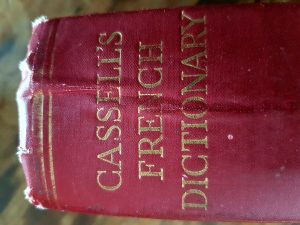
French dictionary
My new hero, Frederick the Great, for instance, spoke and wrote French in preference to German. Even when he spoke German, he is said to have spoken a Frenchified version of it. Legend has it that he once galloped up to a group of officers who were holding their troops back during battle and barked, “Messieurs! Warum attaquieren Sie nicht?” (“Gentlemen! Why are you not attacking?”). The point is that attaquieren is not a German verb, but one invented for the occasion from the French attaquer.
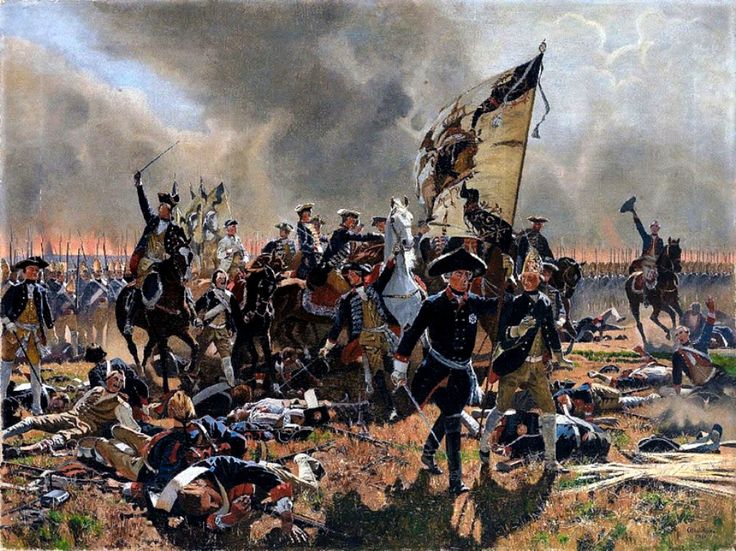
Frederick in the field
Furthermore, French was the language of the ‘Republic of Letters’, that group of what we would now call public intellectuals who lead the Enlightenment. Many of the most eminent of them were francophones, like Voltaire, Rousseau, and Diderot, of course. However, even if the non-francophones published in their native languages, like, say, Hume in English, or Vico in Italian, they used French to correspond with their foreign peers. They also used French when they met in person, which was not often in those days before planes and trains, as did Frederick and Voltaire when the latter took up the former’s invitation to live — temporarily, as it turned out — in Potsdam. When Diderot went to St. Petersburg to meet his benefactress, Catherine the Great, they conversed in French. The Empress, however, was disconcerted at their first interview by the fact Diderot would thump her on the knee whenever he agreed with what she said. At their next meeting, he found that a table had been inserted between their chairs.
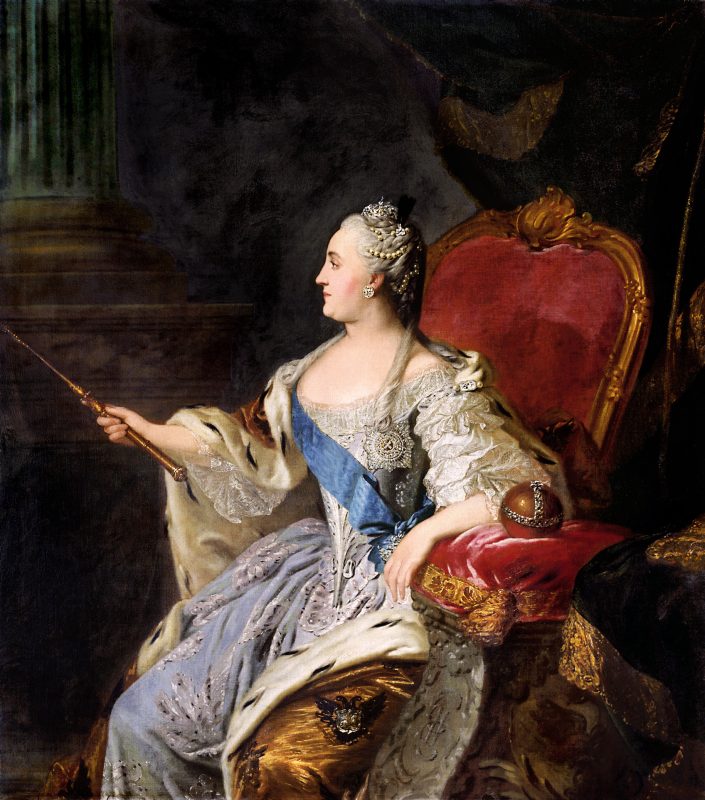
Catherine the Great
Happily for me, French classes were easy to come by. At that time in Ontario, French was a compulsory school subject from the 5th grade to the tenth. I pursued it all the way to the end of high school, and then majored in it at university. I was largely fortunate in my teachers, but unremitting labour was still required. Mastery of a foreign language is difficult to achieve, especially when you’re not living in a community where it’s used. Achieving said mastery was the great, obsessive pursuit of my youth. In fact, I don’t think I’ve ever devoted quite as much time, energy, or effort to anything else. You can imagine then that it was particularly gratifying, decades later when I finally made it to Versailles, that the young woman helping me at the ticket office said, “Since you speak French so well, you should take the French language tour at 10:30. It’s the most thorough one.”
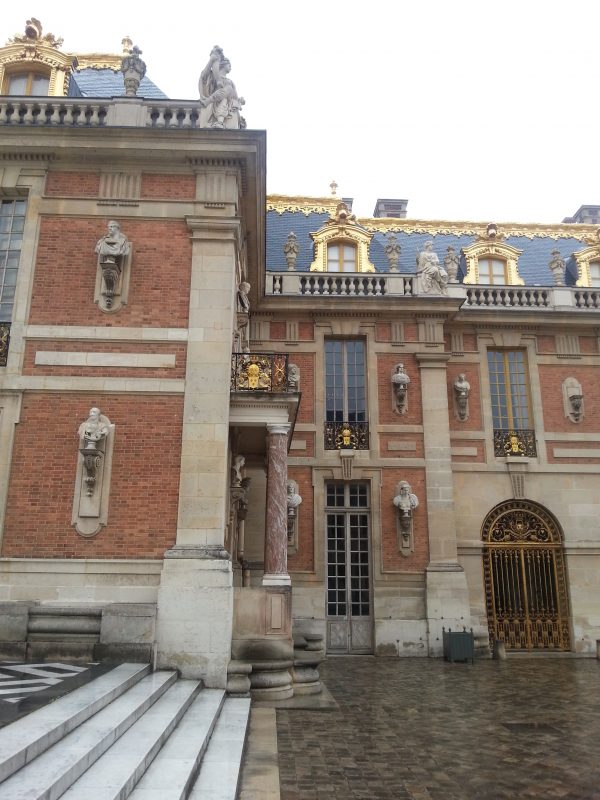
Guided tours of the Private Apartments at Versailles proceed through the gilded gate at bottom right.
She was right, of course. It was indeed very thorough. In a more general sense, reading in the original language is best, if you can, not least because more information is available. It’s a fallacy to believe that everything has been translated, just as it is to believe that everything has been digitized. For that reason, here at Versailles Century, I plan to bring you interesting works that have never previously translated into English. One of the prime candidates is a slim volume I picked up in the bookshop at Versailles: Souvenirs du marquis de Valfons (Memoirs of the Marquis de Valfons).
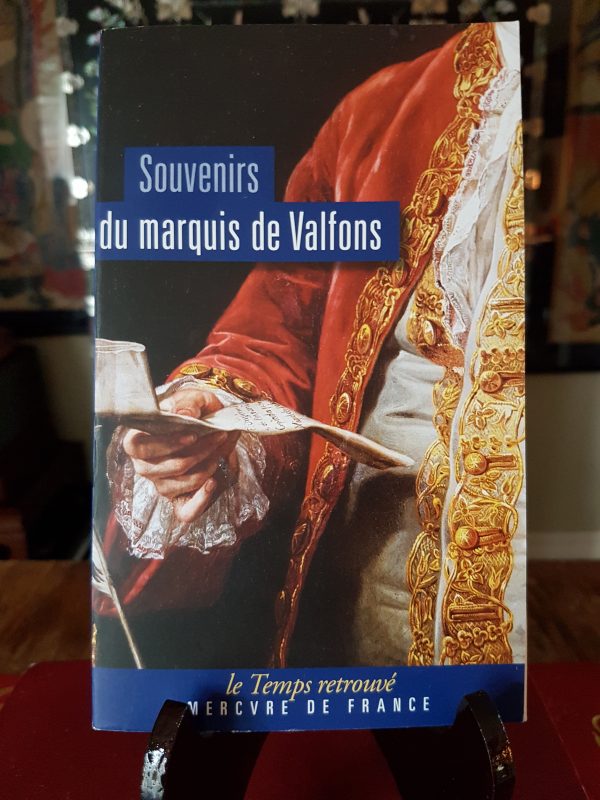
Never heard of him? I’m not surprised. He’s never been translated! The handsome marquis (1710-1786) cut a swathe through the courts of Louis XV and Louis XVI, but also proved himself on the field of battle. If you think this would be a worthwhile translation project to share with my readers, let me know in the comments below — or suggest another worthy candidate.
Please join me as I explore the arts, events, ideas, and people of the Versailles Century (1682-1789). I will bring you stories, images, and, hopefully/eventually, videos from all the corners of the world touched by the influence of this fascinating epoch in our history.
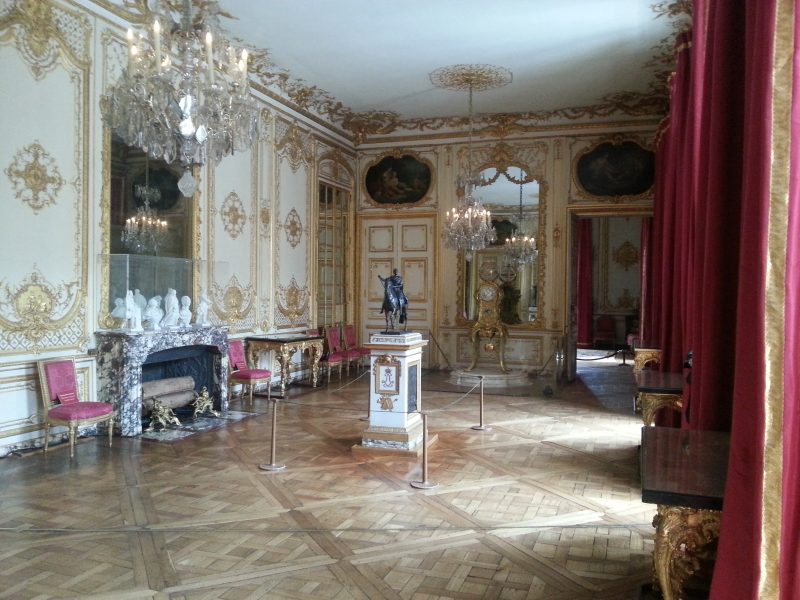
The Salon de la Pendule in the King’s Private Apartments at Versailles. A post about these rooms is coming up!







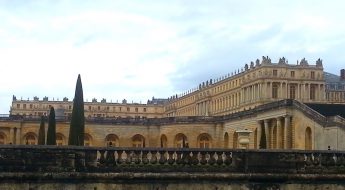
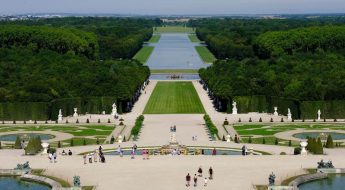








I would LOVE to read this translation! I know this post was from a while ago, but I just saw it. Have you already done this?
I’ve only done a bit of it, an episode about Frederick the Great’s visit to Strasbourg, which you can find here:
Thank you for your comment.
Hey very nice blog!